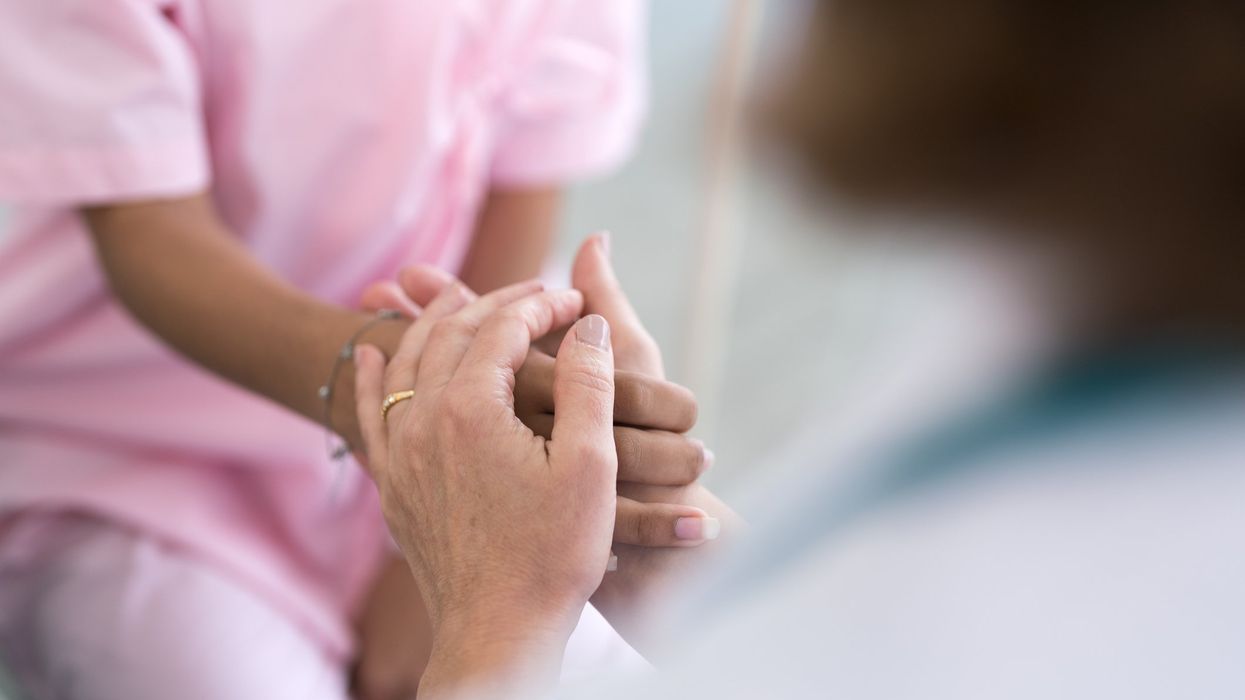It was New Year's Eve 2021, six months before Roe v. Wade was overturned, and I was sitting at my parents' dinner table in La Lima, Honduras, about to have one of the most appallingly memorable nights in my life. The fact was that I, a Latina immigrant from Honduras working in New Orleans, had just had an abortion in the same city, one that marked my life in countless ways. I was quick to address the elephant in the room, my abortion in the face of a deeply Catholic culture, riddled with machismo, and in a country that criminalizes abortions. The table was silent for a moment. Around me were my family and my partner at the time. My mother broke down in tears:
“Mataste a mi nieto.”
“You killed my grandson.”
It pierced my heart to be labeled a murderer by my own mother, a doctor herself, while also assuming a gender for the fetus.
“Si pasa otra vez, dámelo a mi.”
“If this happens again, give it to me,” added my father.
My partner at that time asked me why I brought it up in the first place. I could have kept it a secret and avoided the family fallout. It was simple for me, I want to be loved as I truly am. I didn’t feel loved by my family, I felt ostracized, alone, and on the verge of being shut off from any family support or care I had ever had. All for making what I believed in my heart was the best decision for myself at that particular moment.
My abortion itself was marked by traumatic moments stemming from the multiple barriers to care and reproductive healthcare that already existed even when abortion was still legal in Louisiana. Because of complications and the extended process to actually get an abortion, I ended up going to the clinic three times. Every time I was at the clinic, a different Latina would show up seeking an abortion, and because of a lack of language access, I offered myself as an interpreter for every step of the process, from the payment at the start, to the actual procedure, to the aftercare required. My interpreting skills were so needed that by the third day, the staff already knew me by name and would seek me out when a Spanish speaker came in. I was shocked. If I hadn’t been there, these women would have had to go through such a personal healthcare procedure without knowing what they were being subjected to and what exactly the procedure was—not even for the process that one has to agree to in order to access pain medication. I saw a diversity of abortion seekers who had to endure protesters shaming them outside the clinic, most were mothers already, some had already had abortions, others were in abusive relationships, and some were as young as 15. All of them were convinced that having a child at this moment would be detrimental to their health, well-being, and lives.
The first day I came in for my D&C, I spent the entire day in the clinic. I was nearly the last person. Already drugged up, and shaking a bit from the lack of food, the medicine, and the cold AC, I laid on the surgical table. The doctor attempted to go through my cervix with his instrument and I felt a sharp poking pain. He tried again, but my cervix wasn’t dilated enough. The doctor said that I had to come back on Monday, but I had to be vigilant and go to the emergency room if I started bleeding heavily. I had already taken the drugs to dilate my cervix, so there was a possibility that I could pass the pregnancy throughout the weekend. I’m thankful that I had a community of friends who took care of me throughout the anxiety-ridden weekend. I had a successful procedure when I came back that Monday, and the provider who saw me was the kindest woman I had met, guiding me through each step of the procedure. I kept thinking about the other Spanish-speaking women, who had no idea what was being done to their bodies because of the lack of language access.
My abortion marked my life so profoundly, I can’t not share it. When we talk about abortion and reproductive justice, we seldom mention immigration, but my story goes to show that immigrants, just like everyone else, get abortions. Abortion is now illegal in Louisiana, a state that ranks the highest for maternal mortality and has one of the highest poverty rates in the country. There is also a large immigrant population, and our fight is for access to legal, safe abortion itself but also for language justice in all its forms and in all instances. We all deserve a world where we never feel alone, a world where we have full access to all healthcare services we need, in the language we speak, at the time that we need them.
I lost my work visa in 2022, and now I’m on a deferred action status, one that is under threat of elimination. Because of that, I am not able to travel back home to Honduras. My family and I have worked on repairing our relationship after the fallout. My mother has apologized and even opened up to learning more about reproductive justice. I can’t help but think, if something happened to her, I wouldn’t be able to take care of her. The other day, after reading headlines of the ICE kidnappings happening around the U.S., she told me she had a nightmare about ICE kidnapping me. This is reproductive justice, too; immigrant justice is reproductive justice through and through.
Edith Romero is a Honduran community organizer, researcher, writer, and a Public Voices fellow of The OpEd Project, The National Latina Institute for Reproductive Justice, and the Every Page Foundation.




















Trump & Hegseth gave Mark Kelly a huge 2028 gift